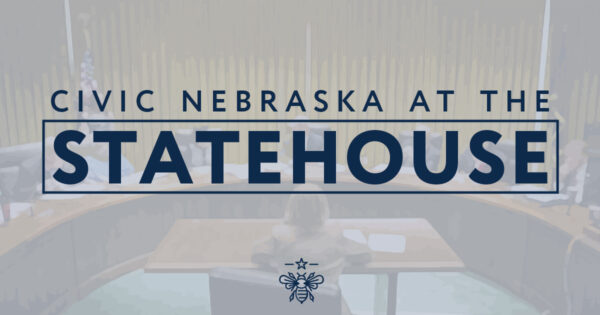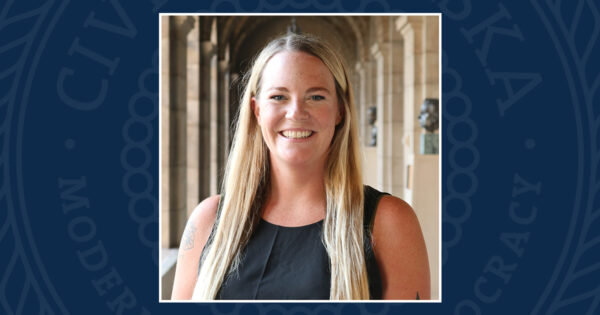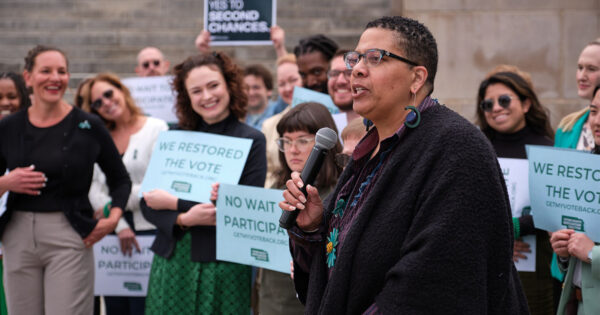In early 2020, Randy Bretz of Lincoln saw a video of people from Spain quarantined on their balconies cheering for their nation’s healthcare workers. Bretz was moved by this display of affection – so much so that he resolved to step out onto his front stoop each night at 8 to clap and cheer for his local healthcare workers.
It didn’t take long for his neighbors in his middle-class cul-de-sac to notice, and each evening during that extraordinary spring, more and more of them began to join in. Soon, the cheering and applause quickly grew into a nightly neighborhood gathering that lasted far longer than a TikTok video. Standing six feet apart but together in intent, neighboring homeowners would take part in the nightly ritual, then hang around to share everything from home improvement ideas to the latest COVID-19 tips to news about family and friends.
 Little by little, neighbors got to know one another. New friendships formed; existing ones deepened. The city’s mayor caught wind of the gatherings and dropped in. So did the city’s chief of police and the district’s representative at the statehouse. Neighbors from nearby blocks occasionally made the short walk over. By the end of the summer, Reader’s Digest included the cul-de-sac among its Nicest Places In America 2020. “I never thought it would be something I’d look forward to each night,” neighbor Eddie Rodel told the magazine. “Since we’ve all gotten to know each other more, we’ve helped each other more.”
Little by little, neighbors got to know one another. New friendships formed; existing ones deepened. The city’s mayor caught wind of the gatherings and dropped in. So did the city’s chief of police and the district’s representative at the statehouse. Neighbors from nearby blocks occasionally made the short walk over. By the end of the summer, Reader’s Digest included the cul-de-sac among its Nicest Places In America 2020. “I never thought it would be something I’d look forward to each night,” neighbor Eddie Rodel told the magazine. “Since we’ve all gotten to know each other more, we’ve helped each other more.”
A few miles west, residents of another Lincoln neighborhood – a denser, working-class area south of the city’s downtown – also joined for meaningful change. For decades, this area of the city had been sliced in half by a four-lane thoroughfare carrying some 10,000 cars a day to and from downtown. Over time, the social cohesiveness in the area splintered, and because the street was unsafe to cross, residents were largely sequestered on one side or the other.
Having secured grant funding for community improvements, the city proposed reducing the thoroughfare’s lanes from four to three – one in each direction instead of two, plus bicycle lanes and a center turn lane to improve traffic flow. But business interests from outside the neighborhood objected – an organization called the Lincoln Independent Business Association led a campaign against lane reduction. The road, LIBA said, was a main connector for areas to the south and the downtown area to the north. It warned of traffic congestion and jammed-up arterial streets if the plan went forward. A city councilman introduced a resolution to halt the project.
 Neighbors in the area had long been assumed to be an unorganized mix of renters, low-income families, immigrants, and university students with no time for or interest in politics. But what happened next changed that. Operating on little more than word of mouth, residents began to meet. Meetings led to action: They flooded the city with emails, letters, and phone calls in support of the roadwork. Neighborhood businesses and organizations signed on. Having created momentum out of thin air, neighbors got organized and strategized with one another to get the project across the finish line. A few weeks later, at a public hearing to discuss the proposal, residents lined up for hours, sharing personal stories and imploring councilmembers to invest in their neighborhood. By evening’s end, city leaders (including the councilman who had introduced the resolution to kill the project) voted unanimously to approve the plan.
Neighbors in the area had long been assumed to be an unorganized mix of renters, low-income families, immigrants, and university students with no time for or interest in politics. But what happened next changed that. Operating on little more than word of mouth, residents began to meet. Meetings led to action: They flooded the city with emails, letters, and phone calls in support of the roadwork. Neighborhood businesses and organizations signed on. Having created momentum out of thin air, neighbors got organized and strategized with one another to get the project across the finish line. A few weeks later, at a public hearing to discuss the proposal, residents lined up for hours, sharing personal stories and imploring councilmembers to invest in their neighborhood. By evening’s end, city leaders (including the councilman who had introduced the resolution to kill the project) voted unanimously to approve the plan.
These two instances show a self-evident truth: Democracy is prosocial. Our individual acts compound – and, if we choose, our acts can serve to fortify civic life by connecting with others in common purpose. This can lead to active, responsible co-creation of our shared democratic reality.
It’s not always easy. Increasingly, our society favors individualism and materialism, two things that play to our self-interests at the expense of community. Democracy, with its prosocial communitarianism, calls us to recognize what we all have in common and act accordingly. These acts don’t need to make the news. Every time we pick up trash from the sidewalk, keep watch on children playing on our street, attend a neighborhood meeting, volunteer at a local school, or shop locally, we are fortifying our community’s civic fabric. Each time we write a letter to the editor, connect with new people, take a first aid class, read a local newspaper, or start a book club, we are contributing to our shared democratic infrastructure.
You may be thinking: Gee, this sounds great. But do any of these goodhearted acts amount to anything in the face of the vast, systemic issues keeping us from true progress? How does civil discourse in a middle-class Midwestern cul-de-sac solve the problem of 250,000 toxic tweets being posted every second? Does reconfiguring a short stretch of a street in a single neighborhood address the generations-long practice of discriminatory zoning and the neglect of inner-city neighborhoods? Shouldn’t I focus on bigger, more impactful things?
The answer, of course, is Yes. The answer is also You don’t have to choose one or the other. Of the estimated 35,000 decisions we human beings make every day, it’s natural to focus on our choices that will make a large impact. That doesn’t preclude us from consistently doing smaller, prosocial acts. Sometimes, we have an opportunity to fortify our civic fabric by the bolt; other times, by a few threads. Both are important in the grand scheme of things.
Small acts remind us of our responsibility to one another. Small acts compel us to be engaged in our environments. Small acts highlight every one of our unique, individual roles in our shared democracy. One by one, little by little, small acts add up.
As a system, America is vast, chaotic, diverse, and complex. But every system has its tipping point. When enough small acts ripple outward, then meaningful, systemic change isn’t just possible. It’s probable.
![]()




